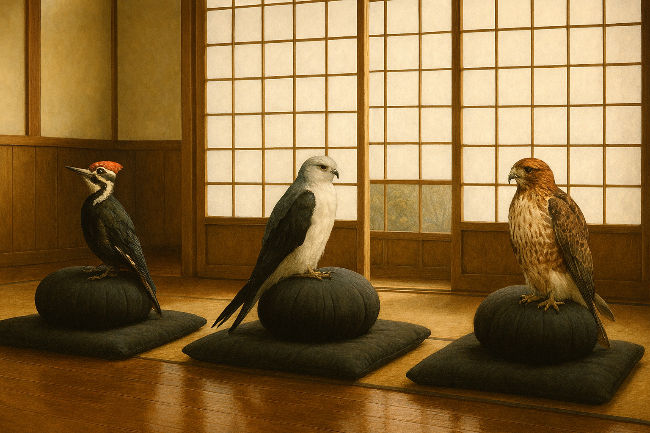Parrot Conservation in Time of Covid-19
- LoraKim Joyner
- Mar 24, 2020
- 4 min read
Though it may seem like things have stopped throughout the world, those who carry out essential services are still taking risks to care for life on this planet, including parrot conservationists. Though many of the countries in which we work have not been hit hard with numbers of COVID-19 cases as of this writing, they are all, except for Nicaragua, under various forms of quarantine and government imposed social distancing rules. Regardless, the local conservationists have not stopped their work. They consider their efforts as essential to their community and the world, and so do we. Though there is physical distance and distancing, we at One Earth Conservation strive to practice social "nearing" and "closening," so that we can support the ongoing work in each of these countries.


Guatemala
Guatemala is currently under a curfew extending from 4 p.m. until 4 a.m. This challenges our field director to get to and from our conservation spots where he and our team are protecting endangered yellow-naped amazon nests. Furthermore, he needs to stay put and not risk movement. So, he is in phone contact with our community members who are still protecting the nests, as they live where the active nests are. Friends I know in Guatemala have not been able to work, and hence cannot get the food they need or medicines. Right now, there is no public transportation in that country.
The Guatemalan quarantine and curfew also impacts our work with the endangered yellow-headed parrot on the other side of Guatemala on the Atlantic Coast. Our main partner here is CONAP, a government agency tasked with protecting wildlife. Though I had to cancel my trip to this area of Guatemala in March, the community members where the nests are located are still patrolling. Above are photos of the team out patrolling in February before the virus impacted Guatemala.

Guyana
Our project to protect the sun parakeets is still going full speed ahead, because the rangers are all from the village where then sun parakeets are, so the quarantine in Guyana does not impact them. They got new bicycles and boots last week and recently returned from an extended camping trip to look for parakeet nests, and will be going out again tomorrow. The difficulty for them is that because Guyana is closed to international travelers, they are receiving less income from tourism, which helps sustain their conservation practices.
In another part of Guyana, the villagers of Rewa can also continue their work because they are monitoring macaw nests in their village territory. They are planning an extended camping nest monitoring expedition this coming week.

Nicaragua
Contrary to other countries in the region, Nicaragua has not yet established mandatory quarantine for people coming from countries affected by the pandemic nor placed restrictions on the movement of people within the country. The local conservationists on Ometepe Island can then continue their work, protecting and monitoring the endangered yellow-naped amazon in 3 communities. They have greatly increased the number of nests registered and protected from last year, a welcome statistical spike in this time of COVID-19. Currently, they are finishing climbing nest trees to confirm activity and the health of the chicks, such as in the photo above taken by Norlan Zambrana's team.

Honduras
Honduras is completely closed to international travel and the entire country is under a curfew where no one is allowed outside their homes without a legitimate reason. The villagers of Moskitia consider their nest protection work to be an essential service and are continuing to work. However, they are locating the majority of their efforts in the forests, and not within the villages, so as to not transmit the virus from community to community. I heard this morning that gasoline is difficult to obtain, so this stops the use of needed motorcycles. They say they will walk to continue their patrols, which most of them do anyway. I heard from several of the villagers, including Mario who said, “I am proud to be protecting the national bird of Honduras," and Sleth who said, “Although there is a curfew all over Honduras, we are working on patrols and surveillance.” I was supposed to be working with these wonderful people for a month starting on April 14th, but that trip is looking unlikely to happen. I have such confidence in them to continue their work without me, and I surely hope that no outside travel brings the virus to their people.

Paraguay
Paraguay is also under quarantine and so we have had to temporarily halt meetings to summarize the field season, which ended in January, and to plan for next year. Our leading conservationist there says that, as a veterinarian, it is difficult for him to help his patients and that life is hard in the capital city of Asuncion

Suriname
We have just begun working in Suriname, but have already found enthusiastic parrot conservationists, such as one who wrote me this week, “I’m doing ok, am seeing a lot of parrots in my neighborhood, nowadays about 10 to 15. I have two palm trees in my yard. They are coming for the fruit and nobody dares to catch them. I am still going on with protecting the macaws, parrots, and parakeets I'll try to keep you informed. Hopefully I can send you some good news."
French Guiana
French Guiana, like Suriname, is under quarantine and restricted travel. One colleague and new friend has told me that since my visit there in January, he began working on a book of endemic parrots of the Guiana Shield, which I help him research as my internet is faster than his. With the quarantine in each of our respective countries, we both have more time to work on our writing projects which have been on hold.




Comments